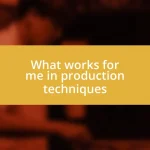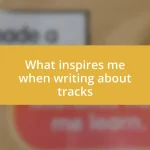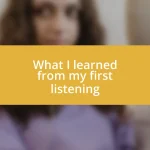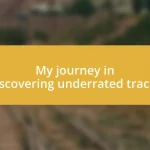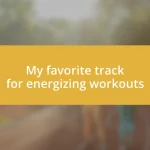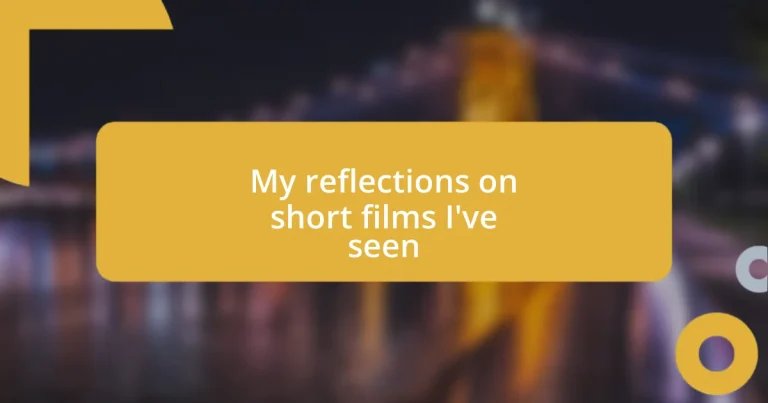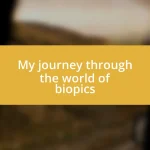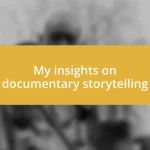Key takeaways:
- Short films effectively convey deep emotional themes such as identity, nostalgia, and human connections in a concise format.
- Cinematic techniques like sound design, visual contrast, and non-linear storytelling enhance the emotional impact and viewer engagement.
- These films impart valuable lessons about resilience, the significance of perspective, and the richness of personal histories, prompting reflection on everyday experiences.
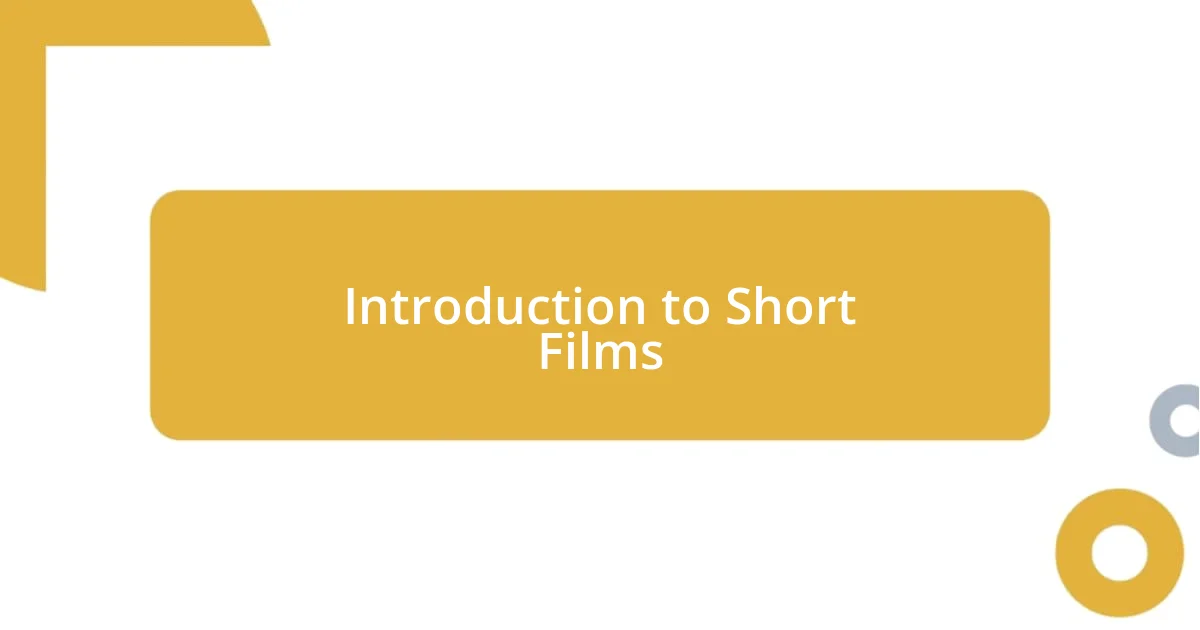
Introduction to Short Films
Short films are a unique form of storytelling that condenses powerful narratives into brief segments, often lasting less than 30 minutes. I remember the first time I stumbled upon a short film festival; it was like discovering hidden gems in a treasure chest. Each film offered a glimpse into the vast creativity and emotional depth that filmmakers can achieve in such a limited timeframe.
Why do short films resonate so profoundly with us? Perhaps it’s the intensity of the experience, where every second counts. I find that when I watch a short film, I’m often left reflecting for days, pondering the layers of meaning packed into those few minutes. It’s fascinating to see how filmmakers tell complex stories with minimal resources and time, yet manage to evoke such strong emotions.
In my own experience, watching a moving short film can spark joy, laughter, or even sadness, often bringing back vivid memories associated with those feelings. I remember watching a short that beautifully captured the essence of loss through a few poignant scenes; it lingered in my mind long after it ended. It’s in these snippets of artistic expression that we often find universal truths, connecting us all through shared experiences.
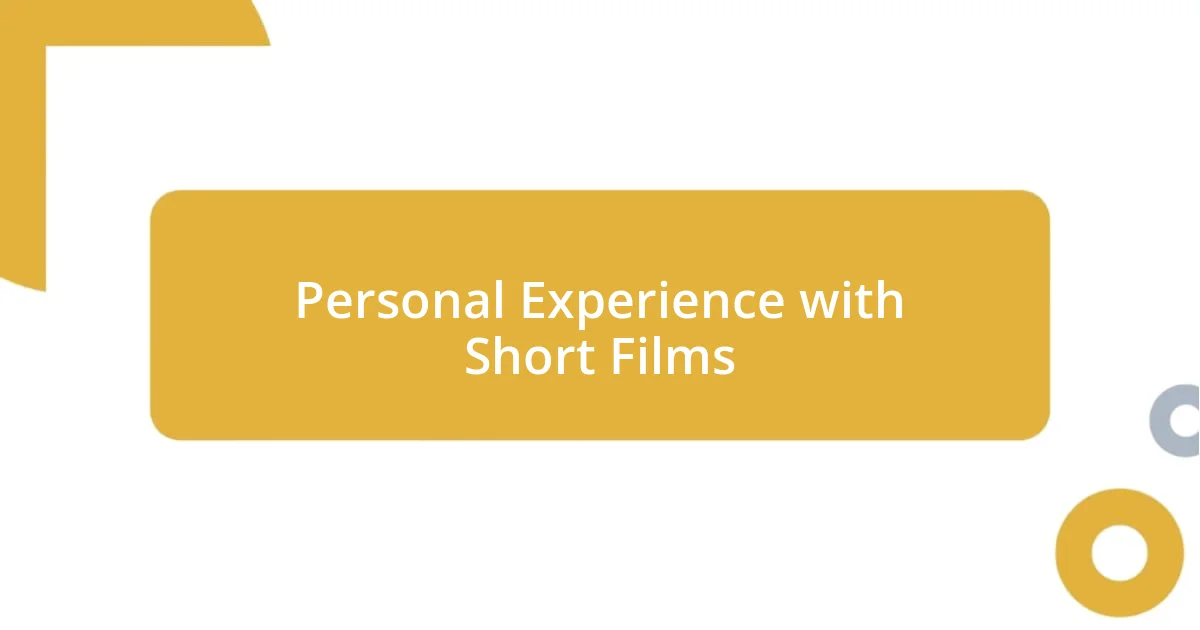
Personal Experience with Short Films
I’ve always cherished those moments when a short film seems to speak directly to my soul. One time, while unwinding on a lazy afternoon, I watched a film that depicted the bittersweet nature of childhood memories. It was a mere ten minutes long, yet I found myself being transported back to my own carefree days, evoking a rush of nostalgia that left me both joyful and melancholic. It’s incredible how just a few frames can unravel such deep emotional layers.
My first encounter with animated short films remains vivid in my mind. I was captivated by the way every visual element told a story without uttering a single word. The colors, the movements, and the little details drew me in, making me realize that storytelling transcends language. This experience taught me that sometimes, less is indeed more, and the absence of dialogue can create a profound connection between the story and the viewer.
Short films often serve as a mirror reflecting diverse human experiences. I once watched a piece that explored relationships through the lens of everyday encounters between strangers. It was profound to see how a brief interaction could succinctly depict the complexities of human emotions. This film made me reflect on my own fleeting interactions in daily life, reminding me that every moment holds a story worth telling.
| Aspect | Short Film Example |
|---|---|
| Emotional Impact | Nostalgia through childhood memories |
| Storytelling Techniques | An animated short communicating without words |
| Diversity of Experience | A depiction of fleeting human connections |
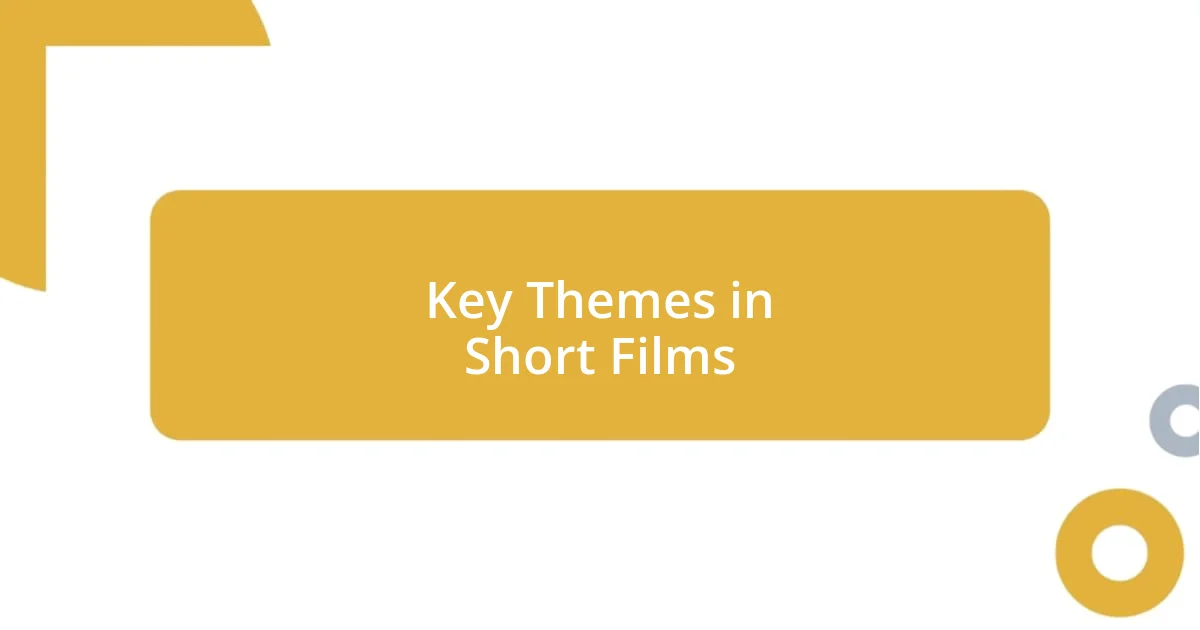
Key Themes in Short Films
Key Themes in Short Films
One of the most striking themes I often notice in short films is the exploration of identity. This theme resonates deeply with me, as I’ve seen films that touch on cultural heritage, personal struggles, and the journey of self-discovery. I remember a short film that centered on a young woman’s quest to understand her roots; it featured heartfelt conversations with her grandmother, which reminded me of my own experiences learning about my family’s history. It’s like peeling back layers of an onion, revealing complexities that define who we are.
Another prominent theme is the impact of human connections. After watching a poignant short about an elderly man and a child whose lives intersect for a brief moment, I couldn’t help but reflect on the significance of chance encounters. These stories often show how a fleeting moment can leave a lasting impression, urging me to appreciate the little interactions I experience daily. Here are some key themes I frequently find in short films:
- Identity and self-discovery: Films that portray characters grappling with their personal backgrounds.
- Human connections: Illustrations of brief but impactful relationships that forge unforgettable memories.
- Nostalgia: Stories that evoke emotions tied to past experiences, often leading the viewer to reminisce.
- Resilience: Narratives that highlight characters overcoming challenges, showcasing the strength of the human spirit.
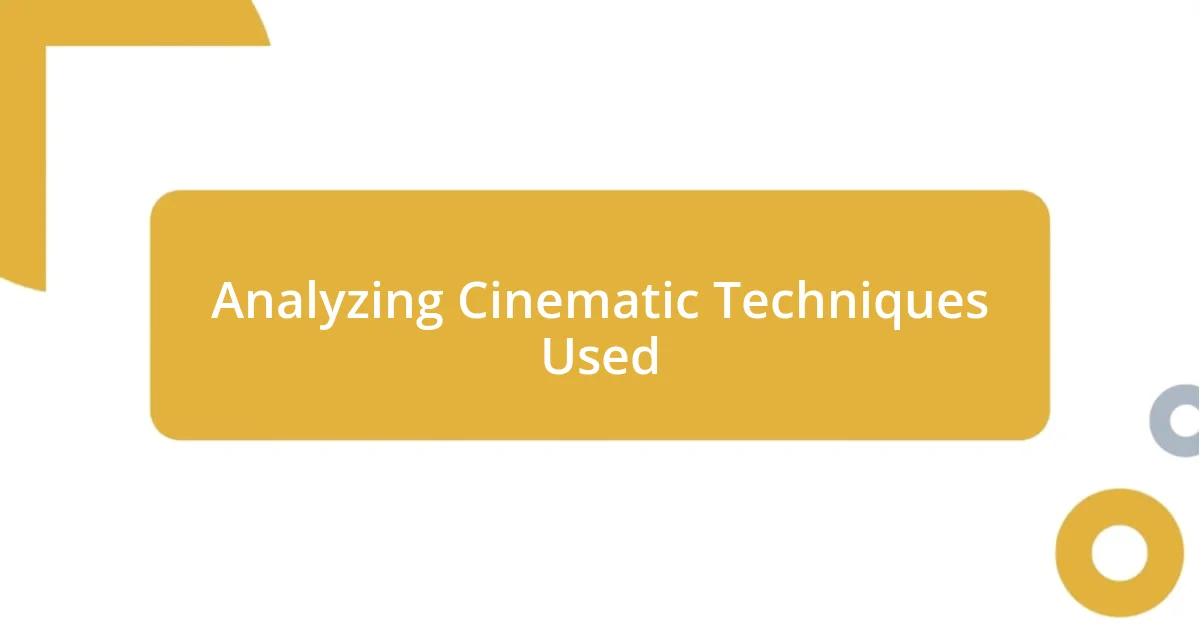
Analyzing Cinematic Techniques Used
It’s fascinating to dissect how certain cinematic techniques carry the emotional weight of a short film. I remember a particularly striking piece shot in black and white, where the contrast emphasized the loneliness of the protagonist. Those stark visuals evoked a feeling of isolation that lingered with me long after the credits rolled. In my experience, I find that such careful manipulation of color or light not only tells a story but also deepens the viewer’s emotional connection.
Another technique that often leaves a mark on me is the use of sound design. In a short film that revolved around a young boy and his love for music, the absence of a score during critical moments made the tension almost palpable. It’s one of those instances that makes me ask—how does silence speak louder than words? For me, this taught a valuable lesson in how sound can shape our understanding of a character’s inner world, creating a more immersive experience.
Then there’s the narrative structure itself. I recently watched a short film that employed a non-linear format, weaving past and present together seamlessly. This approach kept me intrigued, piecing together the story like a puzzle. It made me wonder: how do these unexpected narrative choices enhance our engagement? I believe they invite viewers to think critically, allowing the emotional and thematic depths to resonate even after the film ends. Cinematic techniques like this can transform a simple story into a memorable experience, leaving us reflecting on our own lives.
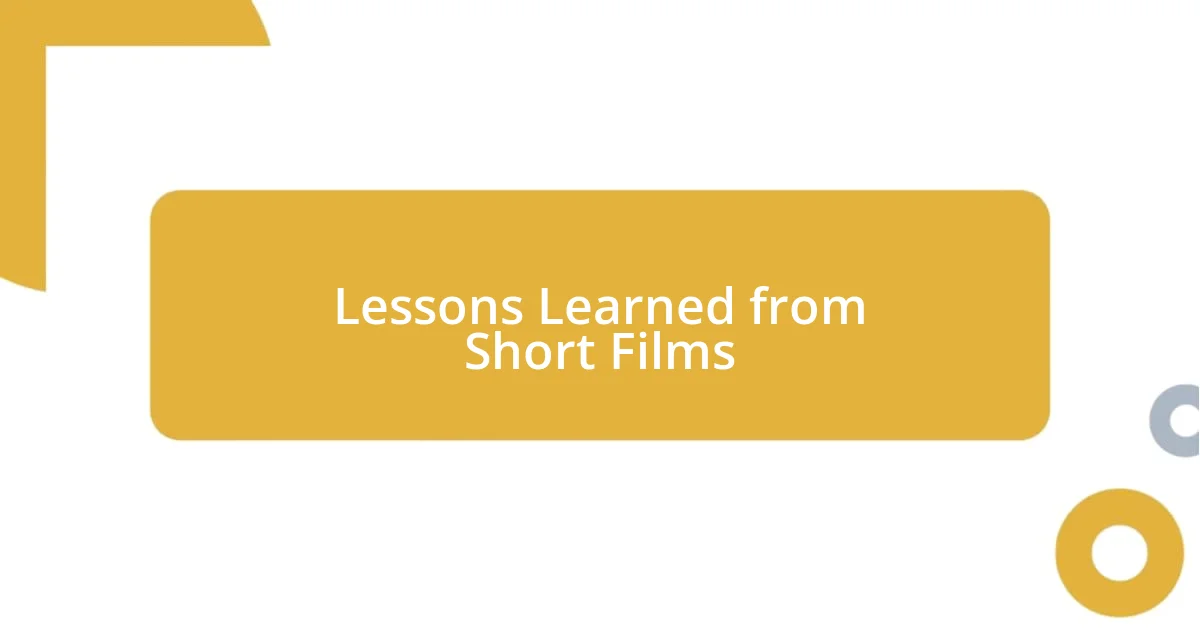
Lessons Learned from Short Films
Short films have an uncanny ability to deliver powerful lessons in a concise format. For instance, I recall one that cleverly depicted resilience through the story of a young girl facing a seemingly insurmountable challenge. It struck me how she drew strength from her surroundings, reminding me of times when the smallest inspirations helped me push through difficult moments. Isn’t it fascinating how a brief narrative can spark such reflection on our own resilience?
Another lesson I’ve taken away relates to nostalgia and its potent impact on our emotions. One short film I watched featured a character revisiting an old neighborhood, and as she walked the familiar streets, memories flooded in, filled with both joy and sadness. This made me ponder how our past shapes our present. I found myself reflecting on my childhood memories and what they mean to me today. It’s these evocative moments that remind us of the richness in our personal histories, isn’t it?
Lastly, some short films subtly highlight the importance of perspective. I remember watching one that followed a day in the life of an unsung hero—a janitor whose small acts of kindness created ripples in his community. It made me think about the unnoticed heroes among us and their crucial role in our everyday lives. Have you ever paused to consider how a simple gesture could transform someone’s day? This perspective opens our eyes and hearts, urging us to appreciate not only our stories but also those of others.
